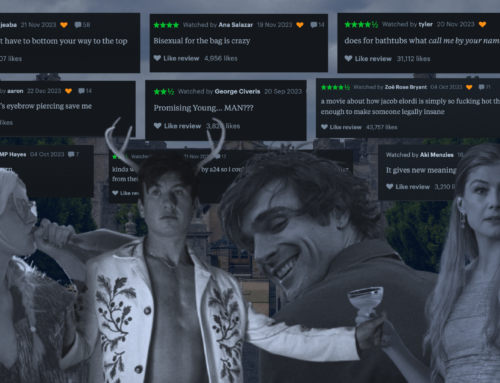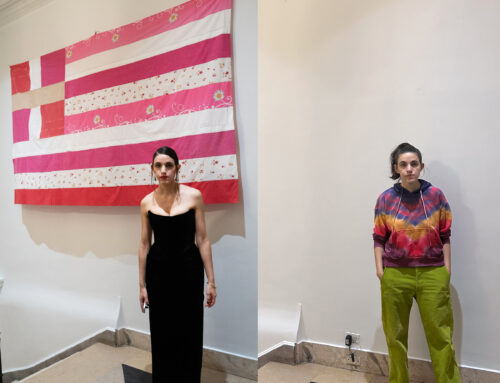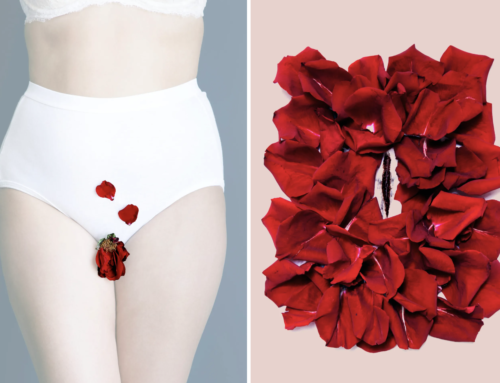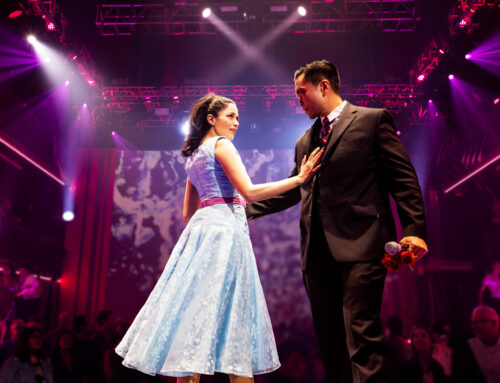
There’s a reason Norwegian-Grammy nominated Tuva Hellum Marschhäuser is a one-woman producer-singer-musician extraordinaire, and on her latest project, New Orders, it’s easy to understand why that is.
Under the name Tuvaband, the artist released New Orders on Jan. 20, 2023. A sweeping collection of songs that explores the ethereal melancholy of time and space while managing to create a euphoria that blooms from it all like a wildflower in a sidewalk crack, New Orders is an ode to all the versions of yourself: past, present, and future.
Right away, on track two, “Something Good,” Tuva sings, “I do believe, I do believe something good is gonna happen,” over production that shimmers. It’s the perfect song to start the new year with, as it feels like Tuvaband came armed and prepared for a year of rebirth, reflection, and, most of all, hope. In a year like 2023, after the entire world has been through a pandemic that stunted the lives of so many for the last few years, it feels like the new year’s reset is a breath of fresh air that’s awoken a new spirit in all of us and New Orders is the soundtrack to that revelatory ecstasy.
Similarly, tracks like “Full Bloom” bring a definitively haunting sound that glides through a mystical landscape of genres showcasing an artist who knows exactly who she is in the self-produced instrumentation and composition. On thought-provoking standout single “By the time you hear this,” the album’s focal point at track number 7 out of 14, she dives into what it means to confront all of life’s iterations of yourself, whether it’s nostalgic care for a past self or aching empathy for the future self you’ve yet to meet. “By the time you hear this, I’ve been traveling for a very long time,” she sings in a line striking enough to stop listeners in their tracks. “This is the end of the start of the end of the start of the end.”
Yet, “everything could be different soon,” she reminds us on “New Orders.”
Below, Tuva chats with Keke Magazine about what it was like to self-produce the entire New Orders album, why black roses represent the project, the message she’s leaving for her future self, and more.
KEKE MAGAZINE: How does the title New Orders tie into the overall story of the EP? Why did you land on that title?
TUVABAND: ‘New Orders’ is also the title of one of the tracks. I felt like the name could cover the full album because I see this song’s topics as some sort of umbrella for the other songs. It’s showing the temperature and state of the time we were in when the other songs were written. The title ‘New Orders’ is somehow referring to the idea that we need a new order, or orders, in the world to be able to change the direction we’re going in. Things can’t change without a new set of orders. And I guess the same [applies] to our lives; if someone needs a personal change, that someone needs to change something.
KM: Where did this project begin in terms of creation? With an idea, a melody, a lyric, etc.?
T: For me, everything starts with the lyrics. I need to have written the lyrics of a song before I can start making the music. After I have the lyrics, I need to find the right vocal melody and chords, which must happen at the same time. I try different chord progressions while I try vocal melodies with the lyrics.
KM: Do you think your perception of “By the Time You Hear This” has changed since it was written during the height of the pandemic vs. now after time has passed? If so, how? If not, why not?
T: Time is still confusing me. But I’ve realized that maybe it wasn’t just the pandemic that was the reason for the perception of time when I wrote that song. It was probably maxed because it was paired with the fact that I had been getting older. This is also supposed to change the perception of time. Time feels like it goes faster because we’ve experienced more similar experiences. I don’t know, but I’m starting to wonder if the grown-up part, paired with the pandemic, where everything paused, led to two countercurrents crashing; and therefore, time [was] perceived as really confusing. But I don’t know, really.
KM: What was the experience like doing everything on this album, from the instruments to producing and mixing? What was your process like in the studio?
T: The composing and production have always been intertwined somehow. And since I started out, I’ve always been recording from the start of the creation. Some of those recordings might get to stay on the record, while others are replaced. What I didn’t know this time around was the fact that I was going to keep my own bass-playing and programmed instruments. And because the drums were more complex this time, I was also surprised when I realized I had to keep some of the programmed drums. The drums were doing too much for only one drummer. And some sounds sounded nice together with the real drums. What was different this time was mixing the sound totally on my own. Also, the technical stuff. I thought it would take me 1-2 months, but it took me around 6 months. I had to learn so much while I was doing it. I also got to send some of the drums through the hardware of the drummer at one point when I felt like the software wasn’t enough. I felt quite tired in the end, as it felt like it was never-ending. And eventually, I wasn’t sure if my ears had gone crazy, if I could even trust them. So [I] had to take a little break and come back to the mixes some weeks later. Just to get a new perspective. In the end, I was very happy. And even more happy that I now know how to do it quicker the next time. Now I can start mixing already while I’m composing, producing, and recording. It feels better when I can vary my work and not do only one thing for months.
KM: How would you describe your overall artistry? Do you consciously think about that when creating a new project, or do you let the music lead you completely?
T: Before making this new album, I think I was very conscious about what music I could release under the name Tuvaband. With this new album, I tried to erase some of these borders. And now, working on my fifth album, I’m even more conscious about erasing them. That’s because I think it’s time for something new after releasing four albums. I’m thinking it would be more interesting both for me in the process of creation and for the listeners who’s joined the ride for a while. At the same time, I wouldn’t say I’m letting the music lead me completely. ‘Cause I’m more and more conscious before I start to make an album. I’ve made various inspirational playlists with the different elements in a song; one for drums, one for catchy phrases, one for production and mixing, and so on. I’m trying even more new stuff on the album in process, far away from my earlier borders, but with clear ideas of what I want to explore.
KM: How do your roots, where you live, and where you grew up influence your sound and style?
T: I’m not sure it’s been influencing me so much. The place I’m from is quite ugly and grey. I had to move to a different place in Norway (Trondheim), start a new life, and become a student before I started making music at all. And the place I moved to was so beautiful. The three years I lived there, it felt like I was in love with the city. I’ve never been more aware of the surroundings than I was when I was living there. And that’s where I started making music. But when I think about it… maybe the dark and cold Norway, in general, has influenced me to write melancholic music. Once, I was in a documentary series in Holland, which was about Norway and melancholia. They were saying Norwegian writers and visual and musical artists from Norway have a tendency to make melancholic stuff.
KM: In honor of “Full Bloom,” if this album was represented by a bouquet of flowers, what would it look like?
T: It would be black roses. A few years ago, I read that they’re not only representing death and endings but also new beginnings and rebirth. Therefore black roses could represent the whole album. I’ve used black roses on stage, in press photos, in a music video, and [in] a single cover art. It started already with my last album, which was about growing pains after a metaphoric re-birth. Maybe I could add a sunflower to the bouquet, strengthening the growth part.
KM: What theme or message do you most hope listeners will hear in this album?
T: This might sound a little cheesy, but my hope while writing the lyrics was for listeners to feel more hopeful and comforted. I wanted many of the songs to be either like a supporting shoulder or a reminder that there’s comfort in hoping or a reminder to breathe even though it might feel like everything is chaos.
KM: “By the Time You Hear This” sounds and feels like a past self leaving a message for the future. If you could leave future you a message right now, what would you say?
T: Exactly! I’ve actually been doing that in my mind since I was a child. Like “remember right now” in five years. It doesn’t have to be a special moment at all, but it just started as an experiment. About your question… During periods of life, I tend to forget some of the helpful ways of thinking. Therefore I will leave future me a message saying: Life feels so much better when I’m hopeful. I’m way more satisfied when I’m thinking everything will work out.
Stream New Orders here!
FOLLOW TUVABAND:



